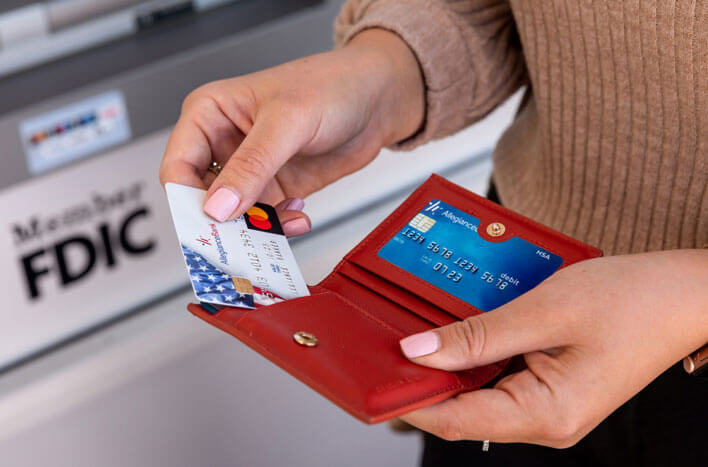If you are a small business owner, it may be tempting to use your personal finances when your business has a financial need. Or, even worse, have just one set of accounts for your business and personal finances. However, these are not wise solutions in the long-term and can leave you exposed to more risk, as a financial issue in your business could negatively impact your personal assets and vice versa.
If you are just starting your business, you should open a business checking account to have an accurate record of your business expenses from the beginning. Likewise, if you are going to use credit cards for your business, you should consider opening a business credit card to keep those separate from any personal cards. Keeping business and personal finances separate will ensure that your business is treated like the independent entity it is, while protecting your personal assets.
Consequences of Mixing Personal and Business Finances
1. You could lose legitimate tax deductions
Business owners are entitled to various tax deductions that individuals are not. Determining what you can legitimately deduct means carefully examining your financial documents. If your business and personal records are mingled, it can be more challenging to pinpoint individual deductions. Separate accounts for business and personal will make it much easier to identify all of the deductions that your business qualifies for.
2. Filing tax returns will be much more complicated
In addition to missing out on deductions, combining personal and business finances will make filing every tax return much more complicated. If they remain apart, preparing financial documents for your tax professional will be a much easier process come tax season.
It goes without saying that every time you file your taxes, you risk being audited by the IRS. What is an already stressful situation could be compounded because of the difficulty in separating business expenses for the auditor.
3. You will expose yourself to personal liability
Separating business and personal finances is essential for tax reasons, but perhaps more importantly, for ensuring that your personal assets remain secure.
New business owners often sign personal guarantees for loans and lines of credit when a business is young and without an established credit history. However, the long-term goal should be to avoid personal guarantees. To do so, you will need to establish a strong business credit score so that potential lenders are confident in your business’s ability to repay debt.
4. There could be a negative impact on your credit score
It’s common for small business owners to use a strong personal FICO score to cover expenses or finance the growth of their business. While this does give you financial leverage without having to establish business accounts, you will be personally liable for your business debts. If you get into financial difficulties, there could be negative repercussions to your credit score. This can severely impact your lifestyle, affecting everything from your mortgage to insurance rates. Not to mention that it will make it more difficult to obtain credit in the future.
5. Your accounting process will be more difficult
Most small businesses have some monthly, quarterly, and annual tax filing responsibilities. The process of digging through receipts, expenses, and revenue when mixed with your personal records can be a nightmare and will take up much more of your time. Whether you file your own taxes or hire an accountant, it will be much easier to access your cash flow, revenue steam information, and more.
6. The chance to misuse funds increases
If there is no separation between your business and personal accounts, there will be a stronger temptation to misuse funds. For example, if your business cash flow is hurting, it would be easy to access personal resources to make ends meet or to siphon your business funds when your personal financial situation is less than ideal. This puts you in a precarious situation if the IRS were to audit you and can ultimately hurt your business and hamper its growth.
Ways to Keep Business and Personal Transactions Separate
After understanding the importance of keeping personal and business finances separate, here are some steps you can take to streamline your accounting practices and prevent financial problems down the road:
- Get a business checking account, credit card and/or business line of credit. Partnering with a financial institution that specializes in small business bankingwill be an important first step. They can advise you on your available options and assist you in setting up your accounts.
- Be vigilant about keeping business and personal finances separate. Don’t give in to the temptation to use business funds for personal expenses or the reverse. Ideally, you will adopt this discipline from the time you launch your business, but it’s never too late.
- When you have to make a personal guarantee, make sure you understand what you’re signing up for. When starting a new small business, it’s not uncommon for business credit accounts to require a personal guarantee. Just make sure that you thoroughly understand your personal liability to make an informed decision regarding the risks. The status of your personal credit or financial situation will be an important factor here.
- Designate a salary and stick to it. This is another discipline you should adopt as early as possible. Determine what you will need to earn from your business on a monthly basis and stick to it. You will be much less likely to dip into company funds to meet personal expenses if you have a regular salary coming in.
- Keep detailed records. If you do have to use personal resources for your business, make sure you document everything and have a detailed and accurate paper trail. If you have assets you use for both personal and business use, such as a vehicle, keep detailed records of the mileage you accumulate while using it specifically for business purposes. The same goes for any other asset; keep track of how much you’re using it for business and when.
Stellar Bank would like to help you set up your business for success with a full and flexible suite of treasury management services. Our experienced small business bankers will advise you on the numerous options available to make your business stronger and your job easier. If you have questions or you’re ready to start your journey with Stellar Bank, contact us, and one of our experienced bankers will schedule a time to meet.




